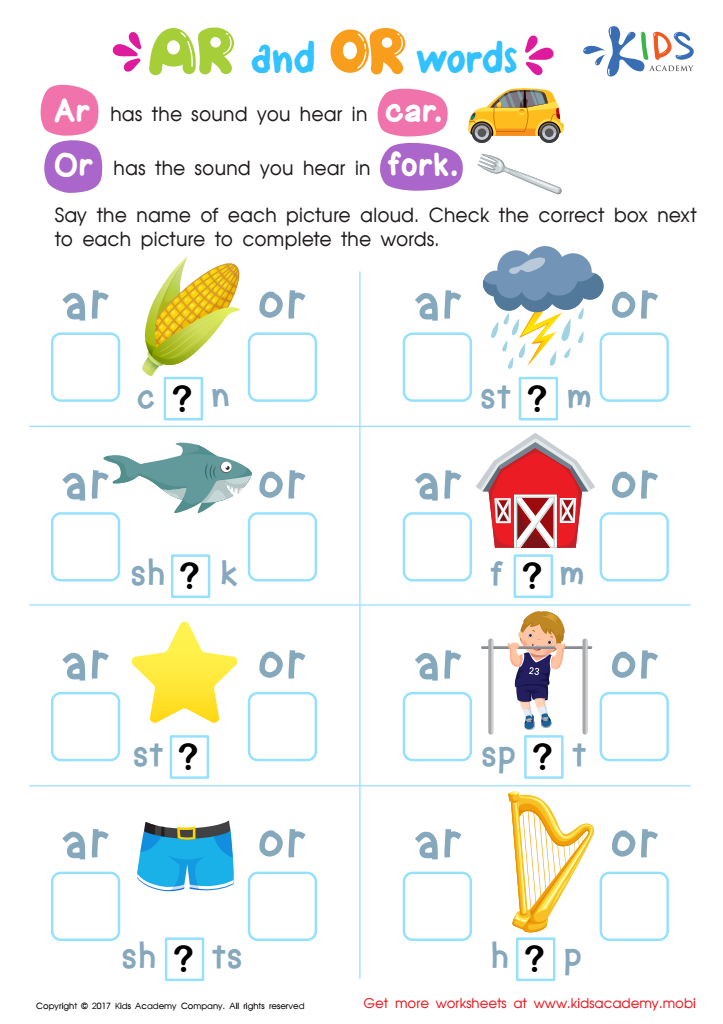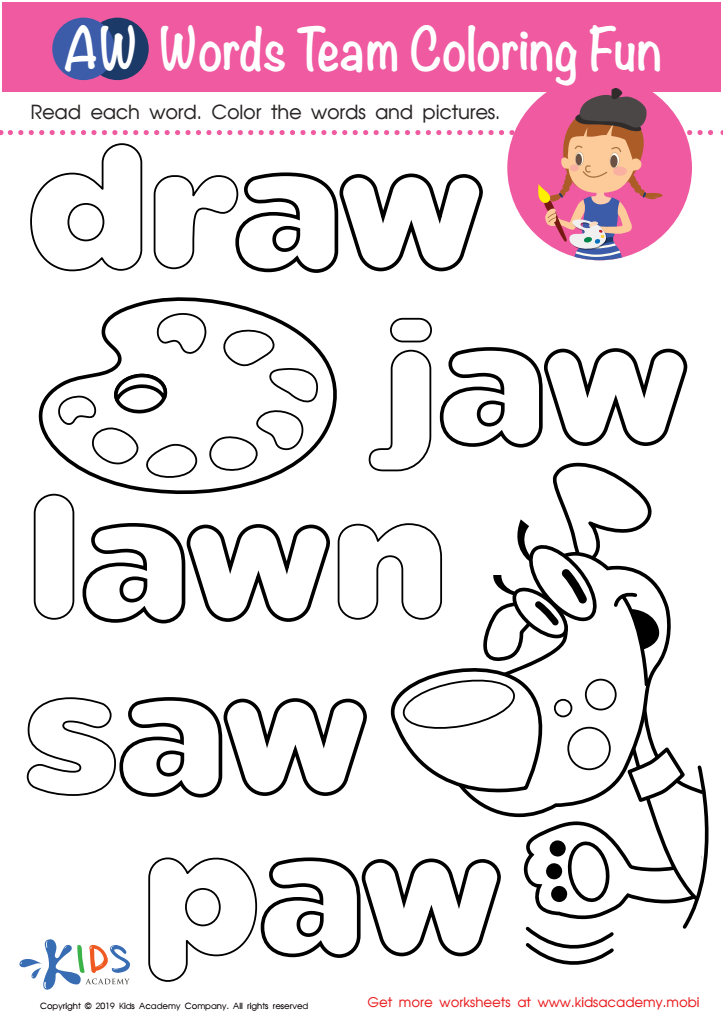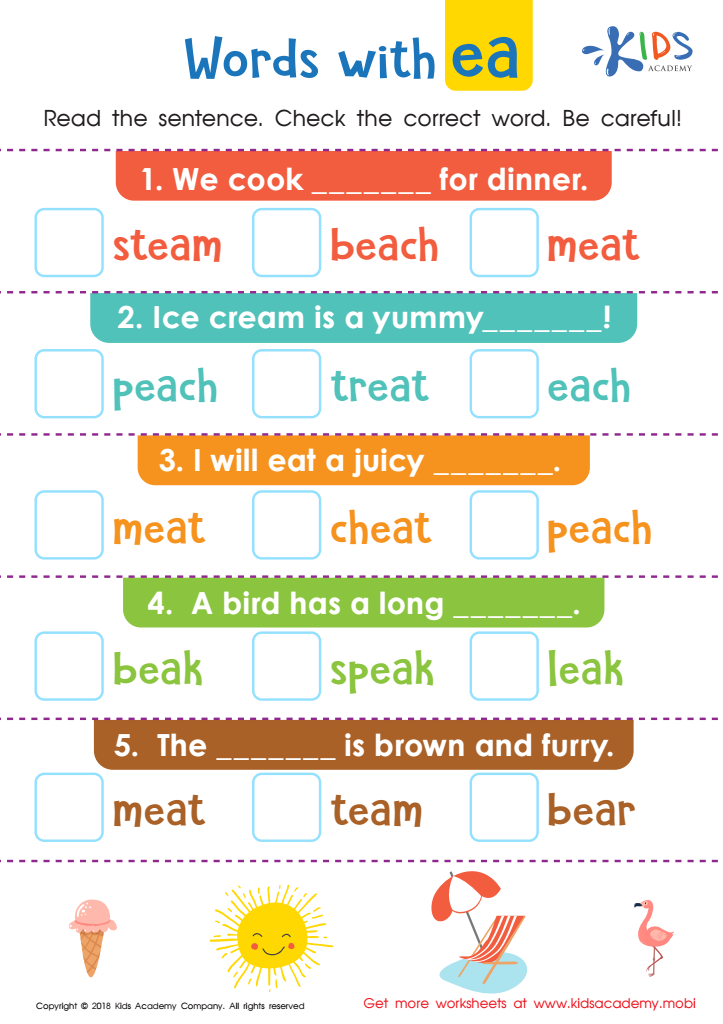Spelling Skills Alphabet Worksheets for 8-Year-Olds
4 filtered results
-
From - To
Discover our engaging Spelling Skills Alphabet Worksheets designed specifically for 8-year-olds! These worksheets provide a fun and interactive way for young learners to enhance their spelling abilities through phonics, letter recognition, and word construction. With colorful illustrations and age-appropriate exercises, children will boost their confidence in spelling and vocabulary. Activities include fill-in-the-blanks, word searches, and matching games that cater to varying learning styles. Perfect for reinforcing classroom lessons or as additional practice at home, our worksheets ensure that learning is both enjoyable and effective. Help your child excel in spelling while having fun with our captivating resources!


Ar and Or Words Phonics Worksheet


AW Words Team Coloring Fun Worksheet


Words with ea Worksheet


Phonics and Word Recognition: Assessment 2 Worksheet
Spelling skills are fundamental for 8-year-olds as they greatly impact literacy development and overall communication abilities. At this age, children are transitioning from basic to more complex spelling, which solidifies their understanding of language structure and phonetics. Effective spelling skills enhance reading comprehension, enabling them to decode words accurately and grasp meanings, which is crucial for academic success.
Parents and teachers should emphasize spelling because it fosters confidence in writing. Mastering spelling skills allows children to express their thoughts clearly and creatively without being hindered by frequent mistakes. Furthermore, incorporating spell-check technology may help, but it can’t replace the cognitive benefits of manual spelling practice.
Improving spelling skills also nurtures cognitive development. Learning spelling encourages critical thinking, as children analyze word patterns and structures. It builds a foundation for more advanced language skills needed in higher grades, influencing overall academic performance.
Moreover, spelling proficiency enhances communication skills, essential for successful interactions both in and outside the classroom. Encouraging a supportive environment where practice and learning can thrive will not only improve spelling skills but also instill a love for language and literacy. Ultimately, strong spelling skills are vital for children to express themselves and engage meaningfully with the world around them.

 Assign to My Students
Assign to My Students
















